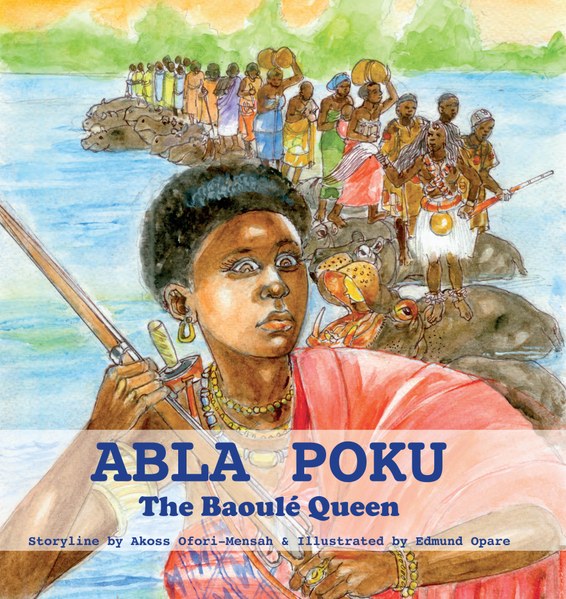Abla Poku, the Baoule Queen
 Abla Pokou, the Baoule Queen
Abla Pokou, the Baoule Queen
Picture Book / Biography
Sub-Saharan
2018
34 pp.

"This colour illustrated children’s book tells the story of Abena Poku. Once upon a time, there was a mighty kingdom in the central part of ancient Ghana known as the Asante Kingdom. It had a powerful king known as Otumfuo Osei Tutu I,the Asantehene. Osei Tutu I had a niece called Abena Poku. After some unrest Abena Poku and her people settled in the area between the Comoe and Bandama rivers in the eastern part of the Ivory Coast and founded a kingdom of their own with Abena Poku as the first queen. Her kingdom became known as the Baoulé Kingdom. Abena Poku thus founded a dynasty which has survived to date." Publisher
This beautifully written book traces the origins of the Baoulé people of Ivory Coast to the Ashanti Kingdom of modern-day Ghana. The story is delicately woven around the history and social cohesion of one of the major clans of the Ashanti Kingdom and shows how power, conflict and control over dynasty led to the migration of some of the people across the river to modern day Ivory Coast. The author does a good job of clearly showing how the ancient kingdoms of Ghana were ruled and how the fight over gender access to the throne resulted in the migration of one clan. The story also highlights the important roles women have played and continue to play in the Ashanti Kingdom, not only as leaders, but as women who are ready to make the ultimate sacrifice to save their people. Abena Poku’s willingness to sacrifice her son to the river god to save her people is one example of such ultimate sacrifice. The enthronement of Abla Poku as the Queen of the Baoulé Kingdom of Ivory Coast is evidence of continuing cultural heritage and women’s leadership. The story also highlights the continuing connections in language, culture and lineage between the people of modern-day Ghana and Ivory Coast. The historical linkage between these two countries, divided by the arbitrary colonial lines further lends credence to the fact that the people of the African continent are one and the same, irrespective of the colonial languages that divide them. The book is well written and flows very easily. For a first-time younger reader of African literature, it may require a little bit of context and slow reading to shift between the different clans and names. Overall, an excellent piece and well-illustrated with beautiful images.
Reviewed by J. Jarpa Dawuni, Phd.D., Howard University
Published in Africa Access Review (February 16, 2019)
Copyright 2019 Africa Access
